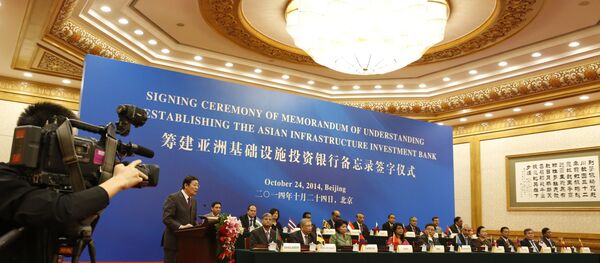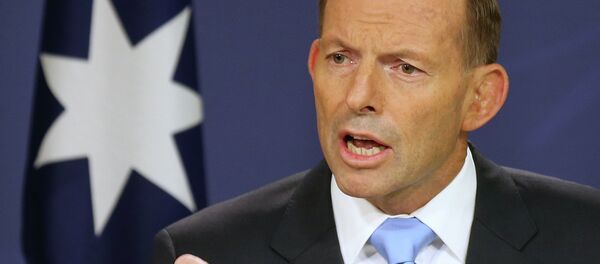The decision makes South Korea the latest in a number of US allies to dismiss Washington’s opposition, and join China’s planned development bank.
Joining the AIIB as a founding member, according to a statement released by Seoul’s finance ministry, would help strengthen South Korea’s influence in the international banking sector, as well as provide more opportunities for domestic firms to participate in in large-scale regional infrastructural projects.
Slowing economic growth in the country has increased pressure on the Asian Tiger to seek new sources of economic expansion, and the government has faced domestic criticism for not providing enough support for overseas deals.
As the statement noted, Seoul expects "the AIIB to help expand business opportunities for South Korean firms with expertise in the construction, telecommunication and transportation sectors…by creating huge infrastructure-building market."
South Korea had voiced similar concerns to the US regarding the AIIB’s governance, with the latter concerned about China using the bank as a means to exert influence over the Asia-Pacific region. The foreign ministry statement indicated that significant progress has been made in addressing the issue, saying that "The government will make efforts in close cooperation with the major countries to help the AIIB possess a high level of standards in the areas of responsibility, transparency, governing structure and debt sustainability."
While China is South Korea’s biggest trading partner, Seoul has had to carefully consider its decision to join the AIIB, particularly as it attempts to balance its economic goals with its long-standing military alliance with the US. Complicating the situation is the possible deployment of a US missile defense battery in South Korea, which Beijing is strongly opposed to, and the US claims would ensure protection from North Korean missiles.
Twenty-one countries signed up to join the AIIB as founding members initially, with seven countries, including South Korea, following suit. Among those countries are the US’s European allies France, the UK, Germany, and Italy. The decision of US allies to join the China-led initiative indicates a failure in the Obama administration’s efforts to lobby against the Bank.
The Obama administration is concerned the bank will increase China’s political and financial clout in the region, and has suggested that it would lower international development standards. However, with key regional allies like Australia indicating that they are close to joining the AIIB, it appears as though the US’s warnings do not merit similar concerns to their allies.




